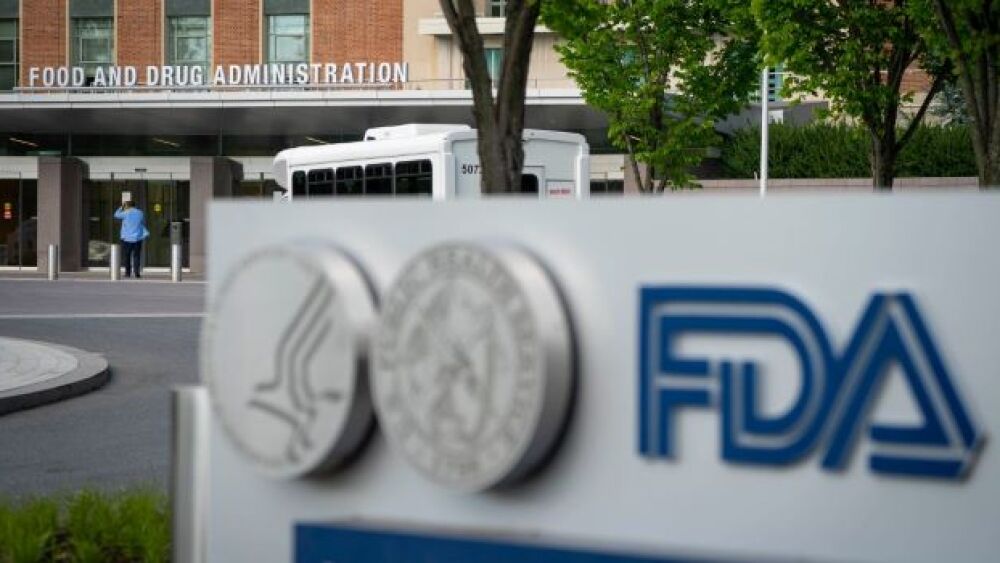The FDA issued complete response letters to Phathom Pharmaceuticals, flagging the presence of N-nitroso-vonoprazan (NVP) impurities in its Helicobacter pylori drug products.
Courtesy of Sarah Silbiger/Getty Images
The FDA issued complete response letters to Phathom Pharmaceuticals, flagging the presence of N-nitroso-vonoprazan (NVP) impurities detected in the company’s approved Helicobacter pylori drug products, the company announced Thursday.
The response letters serve as the regulator’s formal request for Phathom to provide additional information demonstrating that NVP levels will remain at or below the acceptable intake threshold throughout the shelf life of its Voquezna Triple Pak and Voquezna Dual Pak, the company’s approved treatments H. pylori infection.
Phathom also received a CRL regarding its pending New Drug Application for vonoprazan in erosive esophagitis, further delaying its regulatory timeline.
No other issues were flagged in the complete response letters, said Terrie Curran, president and CEO of Phathom, in a statement. The company has continued to discuss its erosive esophagitis NDA with the FDA, “resulting in a near-final label,” Curran said.
The latest delays caused Phathom’s stock to drop 22% in after-hours trading Thursday.
New Jersey-based Phathom first detected trace levels of NVP in August 2022 in the initial commercial launch batches of its Voquezna products. At the time, the company engaged the FDA in hopes of obtaining approvals for an additional test method and proposed specifications such as intake limits and additional controls regarding NVP.
In January, the regulator told Phathom that due to the impurities, it would take no action regarding the erosive esophagitis NDA “on or prior to the current Prescription Drug User Fee Act (PDUFA) target action date,” which was originally set for Jan. 11, 2023.
Due to the regulatory delay, Phathom was forced to postpone the commercial launches of Voquezna Triple Pak and Voquezna Dual Pak in H. pylori, which was initially scheduled for the first quarter of 2023. Both drug products won FDA approval in May 2022.
To address the NVP contamination, Phathom has undertaken extensive root-cause investigations and has implemented mitigation measures to control the levels of the impurity, according to Thursday’s press release.
The company has scheduled a meeting with the FDA this quarter to discuss the NDA resubmission and product launch timelines.
Impurities Impede the Industry
Phathom is not alone in its problems with contaminants. In August 2022, three of biopharma’s most prominent players had to contend with impurities in their products.
Sanofi and GSK, along with the latter’s consumer spinoff Haleon, fielded numerous lawsuits over carcinogenic contaminant N-nitrosodimethylamine (NDMA) detected in ranitidine-based products. Sanofi holds U.S. rights to the most prominent ranitidine drug Zantac, which was originally developed by GSK. Pfizer also owned Zantac for several years.
During the same month, the FDA flagged Nitroso-STG-19 (NTTP) nitrosamine contaminations in certain batches of sitagliptin, the main compound in Merck’s blockbuster type 2 diabetes drug Januvia. The company confirmed the presence of NTTP in some batches of Januvia, as well as of Janumet and Steglujan, both sitagliptin-containing diabetes drugs.
To prevent a drug shortage, the FDA allowed the continued sale of these drugs.






